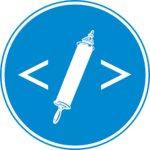Live-mapping Religious Difference Online
The interplay of Digital Society, religious texts mediated online, and live-mapping
What is the feasibility of live-mapping the differential use of religious texts in social media to identify religious issues present across digitally mediated culture? How can we mine social media such as X in the age of restrictions? How can we detect and analyze religious language?
The Network Institute Research Visit project “Live-mapping Religious Difference Online: the interplay of Digital Society, religious texts mediated online, and live-mapping” will be organizing the following events around these questions.
Both hackathons will take place on campus at Vrije Universiteit Amsterdam. Because of the limited number of places available, an application is required. For those whose application is granted registration is free and includes lunch and dinner (pizza). The final joint seminar will be hybrid and open to everyone.
First Hackathon (Thursday 26 Oct 2023; 10.00-17.00):
Text-mining social media in the age of restrictions
Since the surge in Artificial Intelligence advancements over the past year, various social media platforms have grown increasingly cautious about safeguarding their data. To prevent mass downloading, they have either eliminated or restricted access to free or affordable APIs, marking a significant shift. This change is particularly unfortunate for the social media platform X (formerly Twitter). With X’s data now out of reach, how can we still gather social media data? Could platforms like Instagram or Facebook offer viable alternatives?
Regardless, even if we manage to circumvent the current barriers to accessing X’s data, we still face a range of other challenges. For instance, how can we accurately decipher posts in which the text is embedded within images rather than presented in plain-text format? How do we obtain geolocation data if it hasn’t been explicitly tagged? And how do we pinpoint gaps in the data (e.g., by correlating tweets with news articles, we might discover that a particular focus in the data is tied to a specific news event rather than being representative of a broader timeframe or community)?
Second Hackathon (Friday 27 Oct 2023; 10.00-17.00):
Analyzing religious language in social media
How do people tweet about religion? What texts do they use? What is the knowledge base? What hashtags do they use when referring to their holy scriptures (#gospel #Bible #Quran #Qur’an)? How do you discern the religious components of a tweet? The hackathon will use data used in the period August-October 2023 and focus on two case studies: the US East Cost and Nigeria.
The data of the two hackathons will concern two geographic areas and subjects: (1) Religious polarization in the US (East Coast). The contemporary US offers a digital society polarized by conservative and progressive approaches to faith. We will discuss ways to live-map this polarization and explore whether such mapping highlights potential flashpoints in this polarisation. (2) Geographical and religious interactions in Nigeria. We will focus on the mediation of religious texts across different areas of Nigeria and seek to map this onto contemporary political and religious make-up of the country.
Joint seminar (Monday 6 Nov 2023, 14.00-16.00)
What has MIT to do with Jerusalem?
Presentation by Dr. Peter M. Phillips
Dr Peter M. Phillips is Honorary Research Fellow of Durham University and Director of the Centre for Digital Theology, Spurgeons College, London. In this presentation he will tell about his experiences in the work at the Centre for Digital Theology, addressing questions such as: what is Digital Theology? Can computing and theology ever link up or are they still in different poles of understanding?
Application and registration
For application and registration fill in this registration form.


